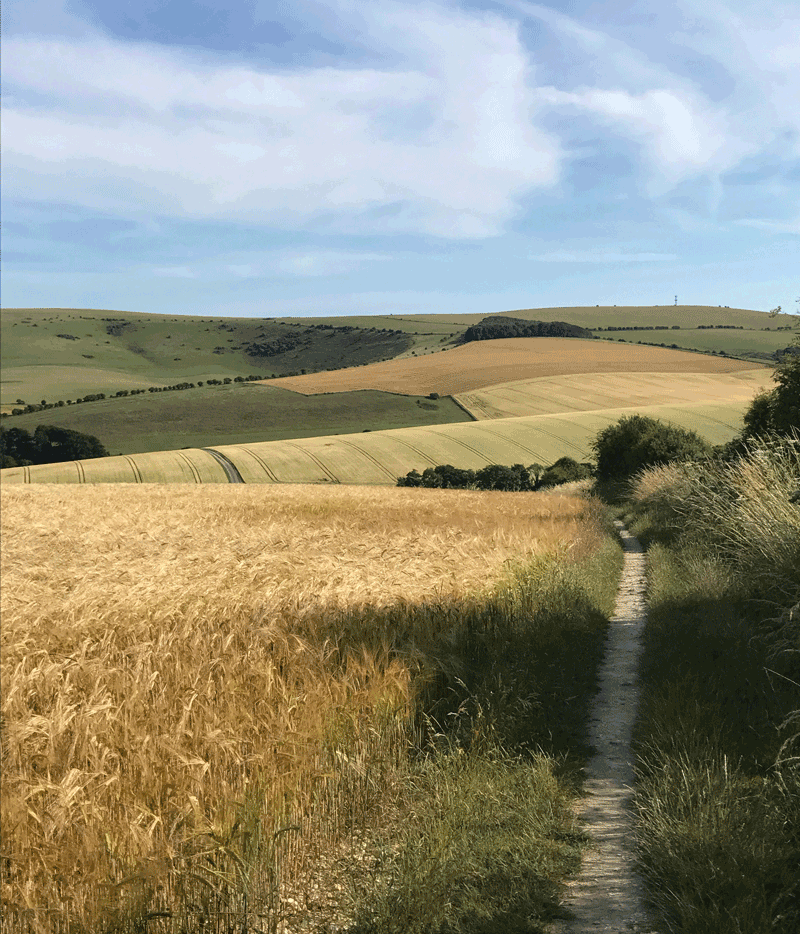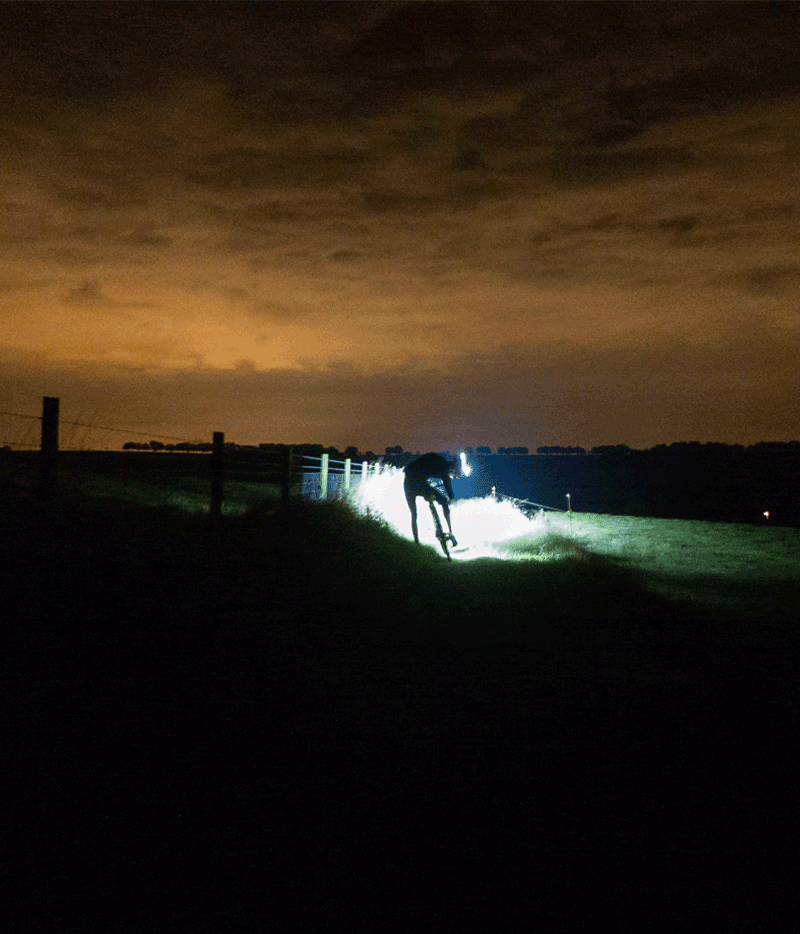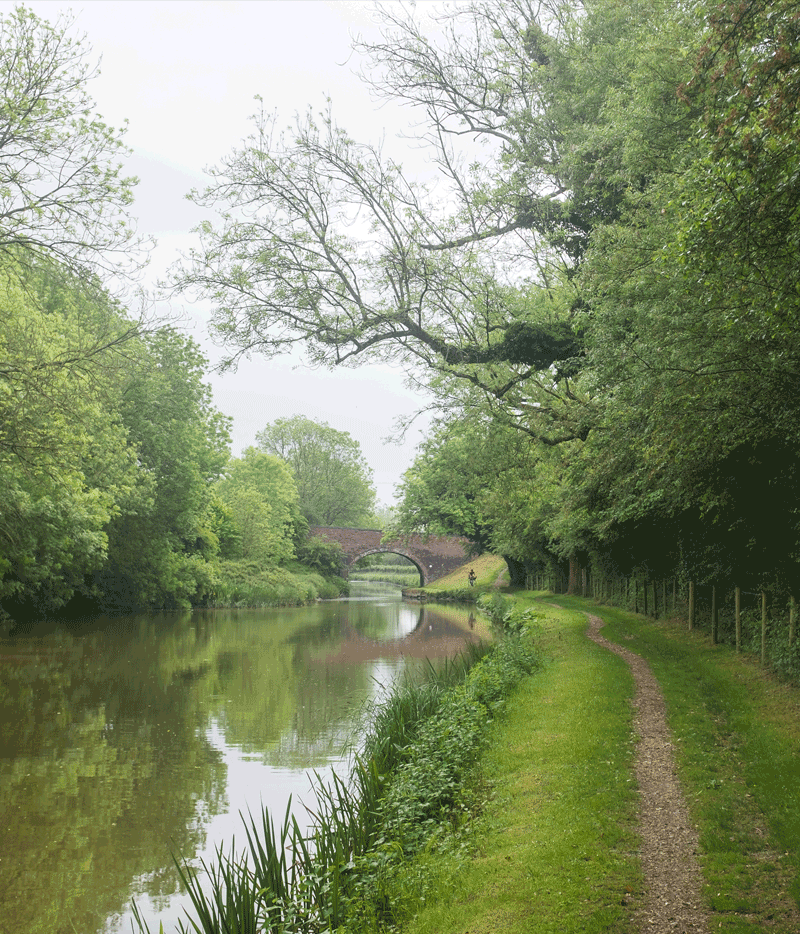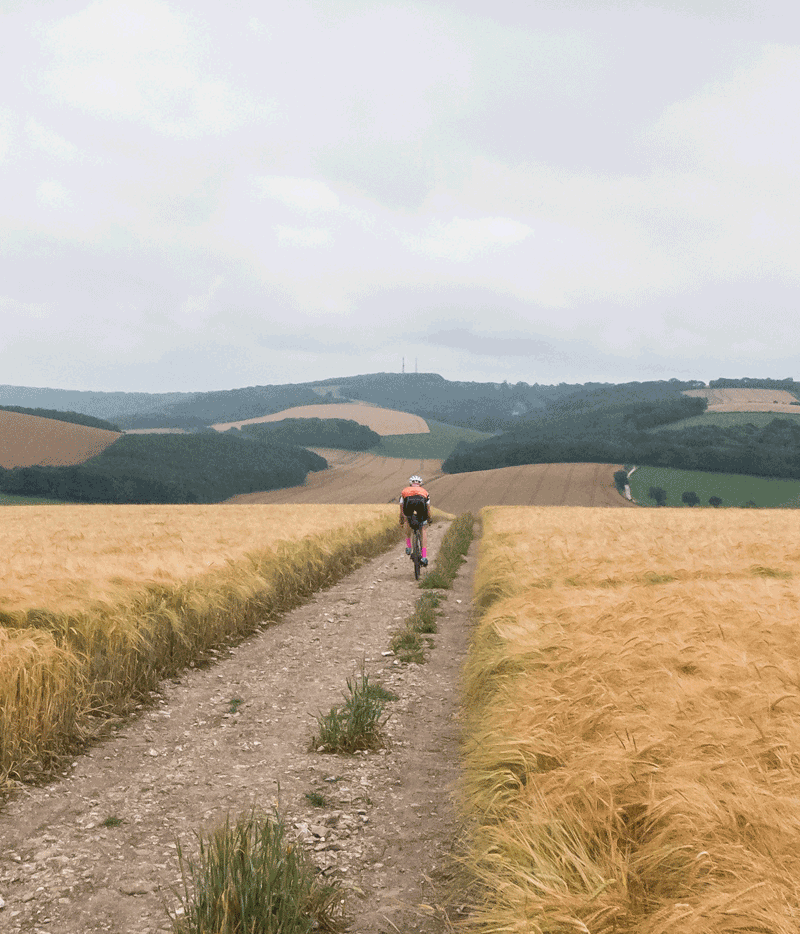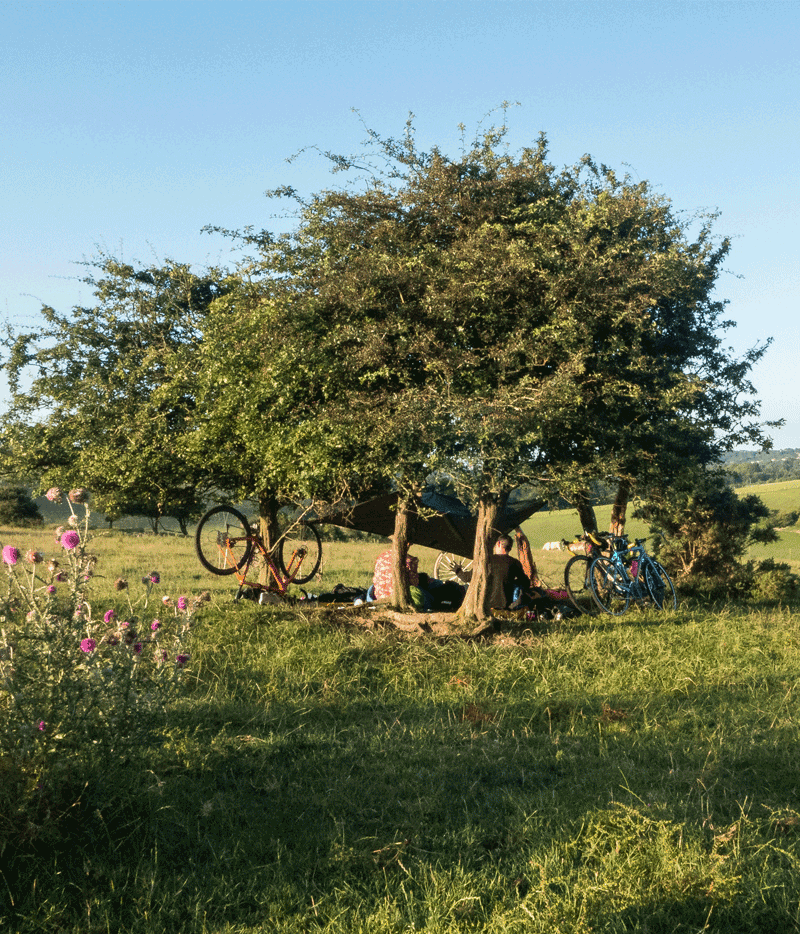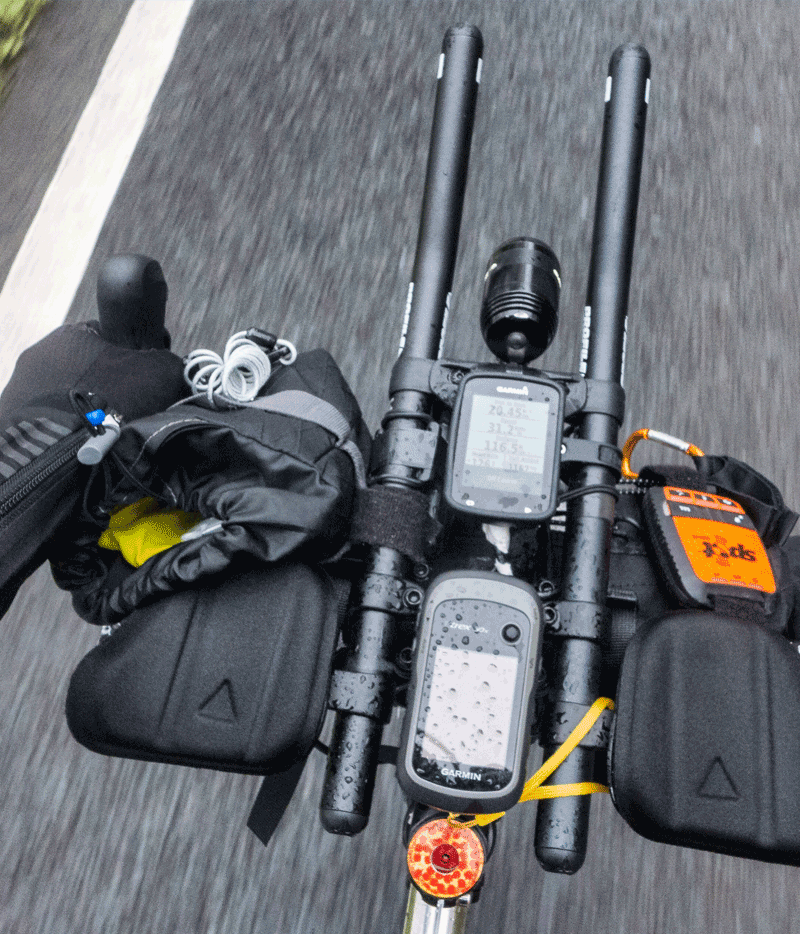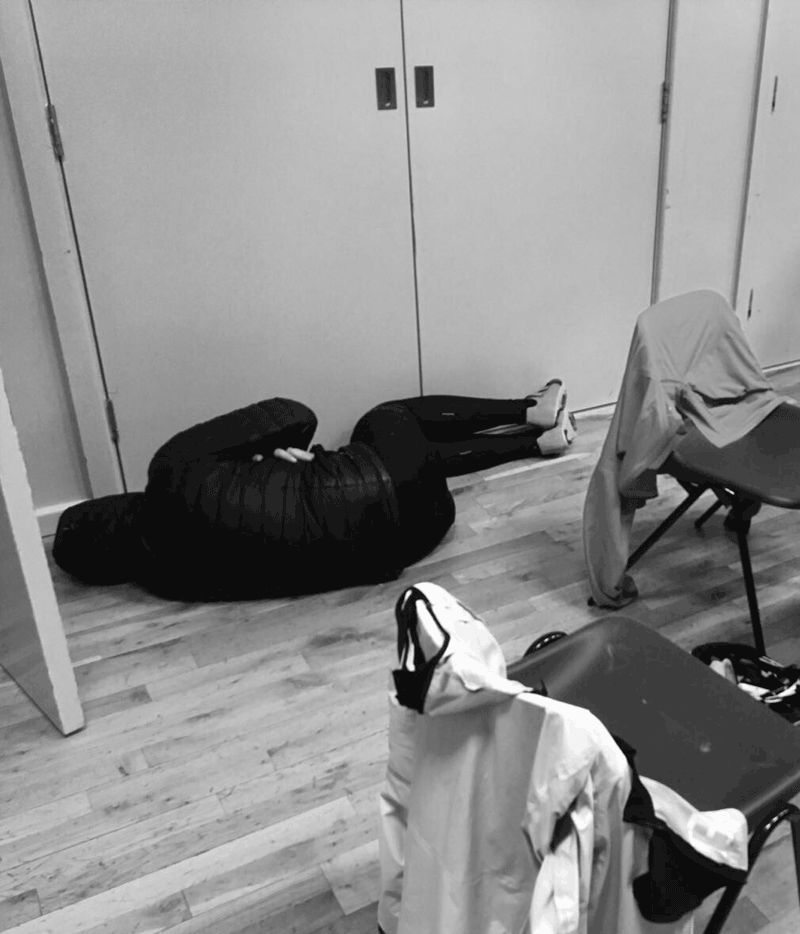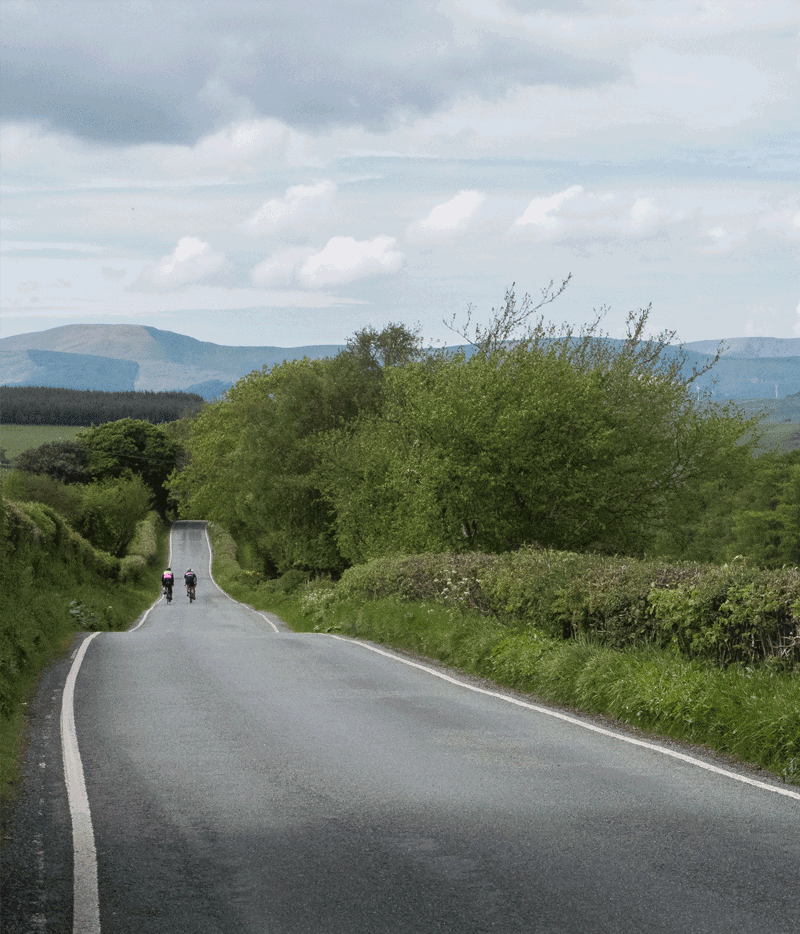pack light, adventure well
Andy Matthews is an architect and photographer living and working in London with a passion for long bike rides — occasionally ones that incorporate some sleeping beneath the stars. With several Audaxes and adventures such as riding the South Downs Way overnight in one hit, Andy is a cyclist knows what it takes to ‘go long’ for a ride.
We had a chat with Andy about the world of the adventure cyclist.
I don’t identify as a roadie or mountainbiker. I'm a person who rides bikes, any kind.
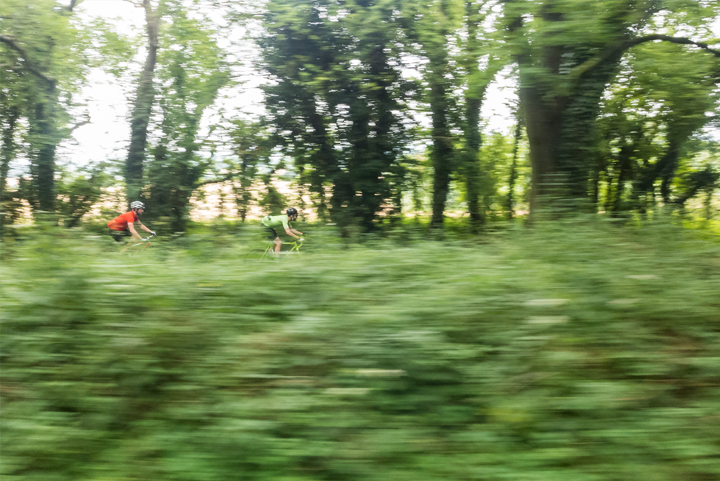
Having completed several revered rides such as the Dunwich Dynamo and back, Manchester to London, the South Downs Way and most recently London to Copenhagen you clearly enjoy going long. How much of this passion is due to pushing yourself physically and how much is about the journey?
I pretty quickly I realised I wasn’t going to be going really super fast and distance seemed to take over as a test of my ability and the thing I wanted to aim for. A lot of people tried to disuade me from this goal and said I should race crits instead. I remember getting to to road riding and riding 60, 80, 100km rides which seemed like a huge challenge at the time and then kind of just kept going. I generally don’t want to just slog it out for the punishment but more as a way of seeing as much countryside in one go as possible. I really enjoying pushing myself in terms of distance and endurance. Your body and mind does funny things when it’s tired, such as hallucinating in the early hours of the morning, and it’s often the mental strength that becomes harder to deal with than the physical. Overcoming or managing that is fascinating to me and in some respects that journey as a person is as important as the journey through the countryside. I feel you learn something about yourself and your environment on every ride.
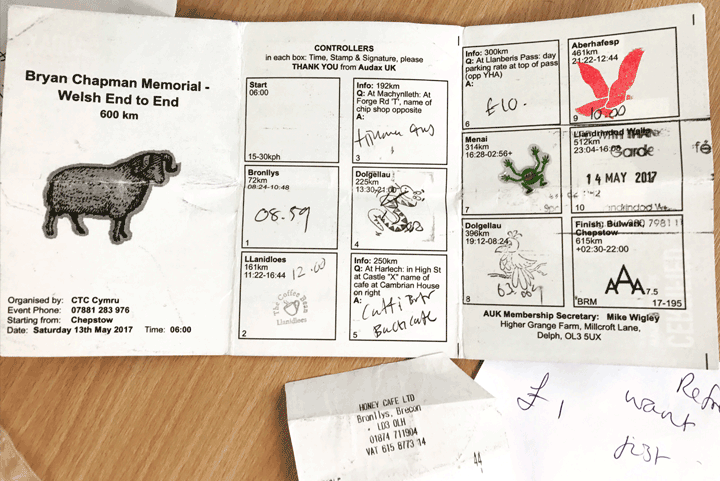
The identity of cyclists, especially with the boom in cycling, is made up in all manner of ways. Some convert from other sports, as a result of commuting, as a ‘progression’ from other cycling disciplines — how did you get to this point as a cyclist? What’s your cycling background.
I spent about 25 years mucking around on mountainbikes in the woods with friends. This involved lots of Welsh trail centres, trips to Les Arcs using ski lifts to get to the top and a few downhill courses as well as the more local rides around London. It also involved a lot of standing around chatting and not riding. A lot of people moved away from it and I became less interested in these relatively short rides that involved more driving than riding as well as dealing with filthy kit and mud on the ceiling of the car, all whilst living in a tiny flat in London. A whole day was taken up for a 10-20km ride.
I have also been commuting in London since 2005 and that helped me make the switch to road riding about four years ago. The idea was to get fitter, lose a bit of weight, ride directly from the front door and generally just get out more. It’s fair to say I’ve completely fallen in love with it and helped me engage with cycling in all forms. I still ride from the front door but now quite keen on riding to a destination and getting the train back to avoid the inevitable in and out of London section. A trip to the seaside on the bike is a firm favourite as well as riding home to Bath along the canal. People showing me the way out into Kent really opened up a new world of riding for me. It kind of snowballed from there really and gave me a way of engaging with the fantastic cycling community in London. Everyone has their favourite route, lane, hill or cafe stop and you will never be short of people to ride with or lead a route for you.
Whilst most of my riding is on a road of some form I don’t identify as a roadie or mountainbiker. Getting into more road based riding opened up so many possibilities and now just see myself as a person who rides bikes, any kind.
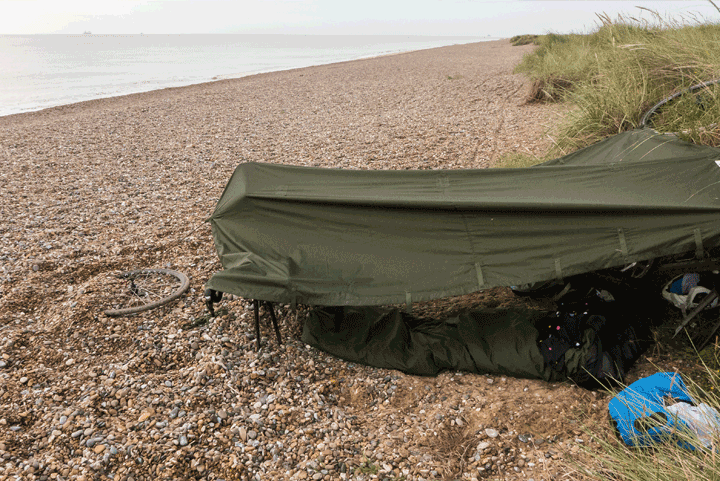
Do you find the technique and skills you acquired mountain biking help in your handling of a road bike and cross bike? It certainly seems to make you less afraid than most road cyclists to take things ‘road plus’.
Without a doubt and actually skills have transferred both ways. There’s the obvious skill of not worrying too much when wheels are sliding around in the muck and being a bit more dynamic on a bike that you naturally get from mountainbiking. Looking further ahead and tracking the trail without worrying about what’s under your front wheel is also another good skill. I actually got more confident descending on a mountainbike after getting my head around descending on a road bike where I felt much more exposed and afraid of hitting the tarmac rather than the soft mud I was used to lying down in occasionally (quite regularly). They feel very complimentary in many ways. The added fitness also made mountainbiking so much more pleasurable as you’re able to carry more speed and pedal through sections that otherwise would have seen you changing gear or hanging on for dear life. I enjoy taking road riding friends mountainbiking and seeing how exhausted they are after a relatively short ride. It’s far more dynamic in terms of shifting your weight around, short bursts of power as well as mentally processing all the features of the trail ahead. I’m planning on doing more this winter to avoid icy roads and keep fitness up.
The road plus thing is great. Taking road bikes off road and exploring more of the countryside really is a perfect blend for me. It just means you can keep going when your route turns into the inevitable mucky bridleway due to my own poor route planning skills and expanding that further to using cross bikes with 40c tyres on opens up even more possibilities and are far more capable off road than I would have previously thought. It has blurred the lines between the two.
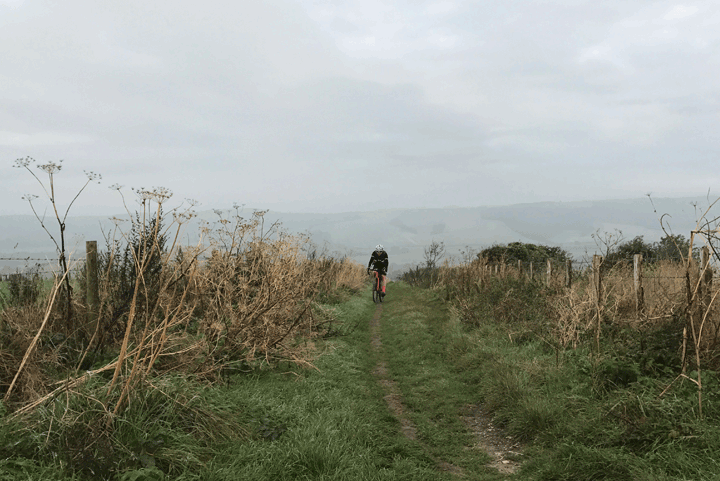
There’s old fashioned notion of bicycle touring; heavy road bikes with mudguards and racks, maps in plastic envelopes and cagoule clad cyclists stopping off for cream teas. Recently the concept of bikepacking seems to have had a rebrand. Why is that in your opinion? Could it be to the changing demographics of cycling or the increase in what people spend to go on a cycling adventure (on equipment for instance).
I don’t think stopping for cream teas should ever stop! I think a lot of it has been driven by very practical reasons. Panniers put a huge stress on your rear wheel and often resulted in broken spokes which is pretty annoying when you’re miles from the nearest civilisation. There’s also a tendency to overpack and take too much stuff.
Slimming down that whole set up allows you to go faster, further and generally have a lighter more pleasant feeling bike due to the weight being more evenly distributed over it. A whole pannier set up is probably more expensive than a basic set of bike packing bags. Technology in terms of fabrics and designs has also helped push to these lighter but tough set ups and you don’t really need to carry that much if you are disciplined about it.
Whilst it has become somewhat fashionable to get into bike packing I really hope it encourages more people to go away for little adventures, whatever that means to them.
What’s a typical, or ideal kit list for you for a long ride — by long lets assume you’re either riding through the night or sleeping under the stars.
A lot of it is driven by comfort, what the weather is doing, the distance covered and whether you’re intending to sleep out. It’s constantly being refined due to each experience and I take great pleasure in refining this and learning from each ride. Take this, don’t take that and so on - it mainly evolves from making mistakes and learning from them and thinking ahead as to how you could improve it slightly.
For an overnight jaunt I try and pack all my sleep kit in a bar bag so that it’s easy to get off, sort out and get sleeping when you’re tired. In this I have a lightweight sleeping mat, bivvy bag and also a tarp if there’s a few of us along with a few pegs, para cord and some tiny carabiners. This allows you to rig a little shelter whatever the conditions are. I then keep all other clothes and kit in the saddle bag with often a frame bag used for electronic things and all the food I need. I always take a warm hat, head torch and a base layer to sleep in. The bikes can be used as supports for the shelter and I love being inventive in terms of how you sort the tarp out with limited options.
I often try and take some form of little luxury with me. For instance sometimes it’s a box fresh pair of socks that will feel amazing when you’re into day two or three of a trip and it’s the only clean thing you have on. Otherwise it’s a tiny stove and a little cafetiere mug and maybe a sachet of porridge. Ridiculous but lovely to wake up and have amazing coffee after a night under the stars whilst eating some warm food.
One thing I’ve come to rely on is some form of ‘comforter’ and by that I mean a piece of kit that you know if going to make you happy. A down jacket with a hood for a stop which you can cut off and sleep in or a sleeping bag when you could probably manage without. Something that you know will be a bit of a treat.
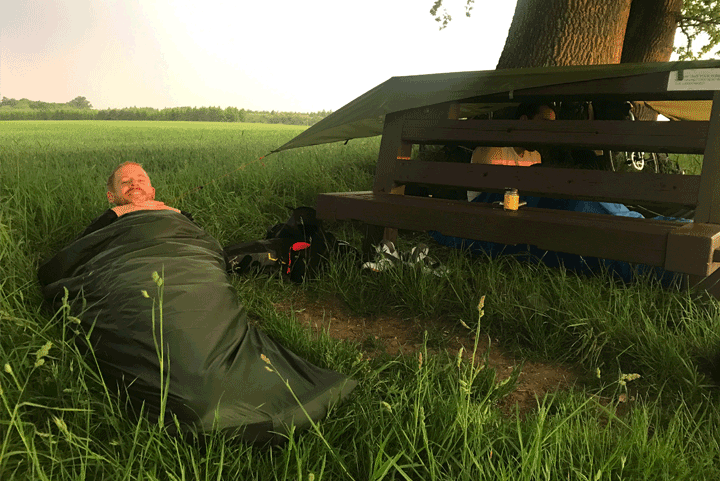
You seem to be always planning a long ride, what’s next and how do you go about the planning? Does the planning bring as much pleasure as the ride itself?
In some ways yes. I have a list of a bunch of rides and events I want to do which I often update and come back to. Planning out your own is great fun though and spending hours poring over ridewithgps.com and tweaking every little bit to get the most out of it is great too. Having said that just going and riding something relatively spontaneously like the South Downs Way is also very rewarding. I also like reading into the history of a place which is inspired by Jack Thurston and his Lost Lanes books. It’s this sense of connecting with the countryside that pleases me the most, especially being a city dweller. The contrast of this is so alluring to me.
If time and work commitments were not as issue, what would be your ultimate cycling adventure look like?
Incredibly hard to say but riding all day in the mountains every day being relatively self sufficient would be great fun and just getting up every day and riding in a different direction exploring. Perhaps cycling round the world one day? I really would one day love to enter and complete the Tour Divide. or another big event.
It would be great to also do a bit of a ‘kitchen sink tour’ as in a relatively full selection of stuff and less mileage per day and really enjoy and engage with the place you’re riding through.
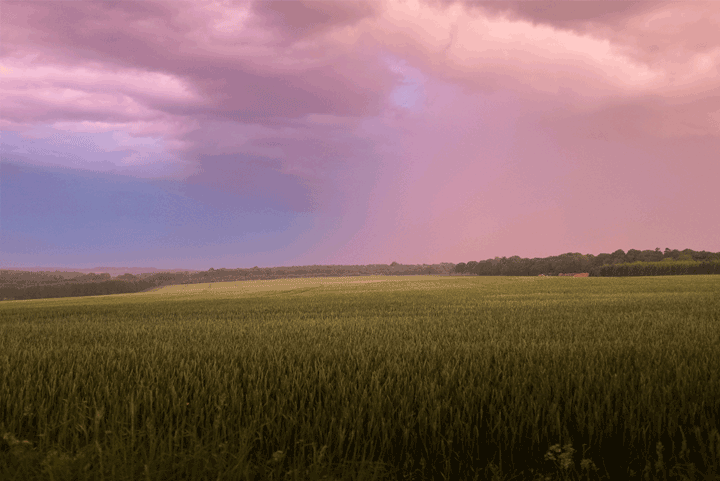
Are you inspired or influenced by anyone? Is there a hero of long distance to aspire to?
Strangely I’ve found Strava to be a big source of inspiration and seeing other people’s rides and achievements really quite interesting. Seeing someone ride from London to Cornwall in a day, London to Ireland in two and so on. All of these magical things appear in your feed and give you ideas. At the other end of the scale it’s a great way of seeing who is doing what and riding which routes. You quickly get an idea of the interesting places to ride and where you might start planning your next route. It’s nice to be able to give something back and often have people asking me for routes having seen something on my Strava page. There’s a whole number of people who inspire me including Jack Thurstun, Mike Hall, Ultan Coyle, Neil Phillips, Rich and Tom Seipp, Victoria Mayes, George Cordal - the list goes on.
Huge thanks to Andy for taking the time to talk to us about going long and being a bike rider not defined by discipline. I'm sure reading about his adventures will inspire others to use their bikes a little differently. Hallucination in a community centre during an epic ride might not be everyone's cup of tea, but I'm sure we can agree that sleeping beneath the stars and trying all types of bikes sounds nothing but fun.


